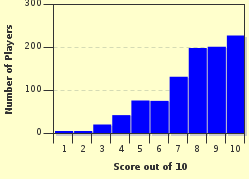Quiz Answer Key and Fun Facts
1. The top ranked song for 1974 was one of four that "dominated" the charts for three whole weeks. It forged to the top of the ratings due to its performance in other point earning components... nine weeks within the Top 10 and 17 weeks in the Top 40. Composed by Marvin Hamlisch, Alan Bergman and Marilyn Bergman, name the song that contained these lyrics.
"Can it be that it was all so simple then
Or has time rewritten every line
If we had the chance to do it all again, tell me, would we, could we"
2. "She's got electric boots, a mohair suit
You know I read it in a magazine"
This song only topped the charts for one week but was one of three hits that stayed in the Top 10 for nine weeks in 1974. As such, it wound up as the year's fifth ranked song. Its title?
3. After a long 17 week climb up the charts, one of the great "soul" love songs of 1974, and any other year for that matter, finally reached the pinnacle in January. The eighth ranked song for the year, can you name it with this lyrical assistance?
"These are the eyes that never knew how to smile
Till you came into my life
And these are the arms that long to lock you inside
Every day and every night
Girl, and here is the soul of which you've taken control
Can'tcha see I'm tryin' to show love is right"
4. "Still looking for that blue jean, baby queen
Prettiest girl I've ever seen
See her shake on the movie screen, Jimmy Dean, Jimmy Dean"
These memorable lines come from the 18th ranked song of 1974. Although it only peaked at Number Five, it lingered on the charts for 25 weeks thereby accumulating sufficient points to earn its lofty status in the rankings. Do you know the title of this hit, the only genuine hit this British singer would have in North America?
5. The hit ranked 21st for 1974 and a Number One for two weeks featured these lines:
"They were funky Chinamen from funky Chinatown
They were chopping them up and they were chopping them down"
Would it be possible to dissuade you from choosing the correct title of the song, "Kung Fu Fighting"? Didn't think so! Instead, we ask you to identify the artist who recorded it, the first native of Jamaica to have a Number One single in America.
6. Another two week Number One hit checked into 27th place in the year end rankings for 1974. Possessing a lovely lyric, let's see if you can identify the song with this piece of poetry.
"If I had a box just for wishes
And dreams that had never come true
The box would be empty
Except for the memory
Of how they were answered by you"
7. With a song that topped the charts for three weeks in 1974, a former pop idol from the 1950s and 1960s made a stunning reappearance on the Top 40 Billboard charts after an 11 year hiatus. That clue alone should be enough to enable you to snag the answer but here's a slice of the lyric to help you out further. What was the 32nd ranked song of 1974?
"What a lovely way of sayin' what you're thinkin' of me
I can see it, your face is glowin'
I can see in your eyes, I'm happy in knowin'"
8. Ranked at 37th for 1974 was a "golden oldie" that was dusted off and given a new reading by an entertainer best known for things other than his vocal talent. Here's how this one week Number One hit begins:
"You come on like a dream, peaches and cream
Lips like strawberry wine"
What's the song's title?
9. Number One during Christmas week of 1974 was a "message" song about familial relationships that still packs quite a punch two generations later. It was ranked 47th for the year. Name it after regarding these words from the lyric.
"And as I hung up the phone, it occurred to me
He'd grown up just like me, my boy was just like me"
10. With 17 weeks in the Hot 100 but only peaking at Number Eight, the following song that ranked 75th for 1974 was much more popular than those numbers imply. It still is! Here's a sample of the lyric, you name the song.
"Well I heard Mister Young sing about her
Well, I heard ol' Neil put her down
Well, I hope Neil Young will remember"
Source: Author
maddogrick16
This quiz was reviewed by FunTrivia editor
agony before going online.
Any errors found in FunTrivia content are routinely corrected through our feedback system.

